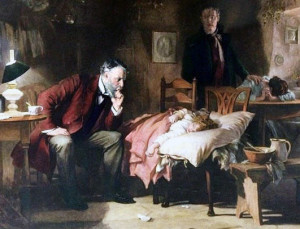 Almost one in five Americans suffer from mental health conditions. According to studies reported by News Week, approximately 42.5 million Americans, or 18.5 percent of the American population lives with some form of mental illness such as depression, bi-polar disorder, and schizophrenia. The same report accounts that 9.3 million of those adults – ages 18 and upward – suffer from “serious mental illness”, disrupting their ability to carry out day-to-day tasks. Problematically, the American mental health care system is ill-equipped to treat many, if not most of these individuals.
Almost one in five Americans suffer from mental health conditions. According to studies reported by News Week, approximately 42.5 million Americans, or 18.5 percent of the American population lives with some form of mental illness such as depression, bi-polar disorder, and schizophrenia. The same report accounts that 9.3 million of those adults – ages 18 and upward – suffer from “serious mental illness”, disrupting their ability to carry out day-to-day tasks. Problematically, the American mental health care system is ill-equipped to treat many, if not most of these individuals.
Rising scrutiny over the American mental health system has brought to light many inadequacies among general mental health care. For example, many individuals displaying mental illness symptoms seek the help of general practitioners. However general practitioners – although qualified – fail to either properly diagnose or treat mental health. Other conditions that affect physical health are often prioritized and even valued more than those affecting mental health. The Huffington Post reports that doctors often neglect to follow-up with patients displaying symptoms of mental illness. Contrary to that, doctors are much more likely to engage with patients suffering from chronic physical illness. What does this mean? The report found that doctors are actively partaking in treatments for patients suffering from diabetes, heart failure, and asthma, but not for those suffering from mental issues like depression.
Part of the reason for this failure is the general cost of health care. Most individuals suffering from mental illnesses like depression or bipolar disorder are left out of proper treatment for financial reasons. Specialists are often expensive, and treatments and visitations are not covered by average health insurance packages. General practitioners who are largely unfamiliar or ill-equipped to treat mental conditions do not address the issue with the attention it requires. “Depression is a recurring illness. When it’s there, it’s often present for months. It needs a lot of active management and multiple treatments. Most people can recover from their depression, but they’re vulnerable to a second depression or a third depression,” said Sagar Parikh, associate director of the University of Michigan Comprehensive Depression Center.
The stigma surrounding mental health illness may also be a contributing factor to inadequate treatments. Doctors may just deem physical ailments as more deserving of treatment, rather than spending time and effort with mental conditions. This may lead to improper doses of possibly harmful medicine. If general practitioners and doctors saw mental health with the same urgency as physical health, many more cases would be properly treated. Mental illness like depression and bipolar disorder lead to other more harmful conditions, such as cardiovascular disease, gastrointestinal issues, and strokes.
Lindsey Holmes of the Huffington Post believes that changing cultural attitudes towards mental health disorders may lead to more adequate training for doctors and treatment for individuals. “These illnesses require effective treatment and proper care in order to live a fulfilling, healthy life,” ends Holmes.
If you found this post interesting and would like to read more on Mental Health news and info, check out my twitter @Herrick Lipton for more. Thanks for reading !